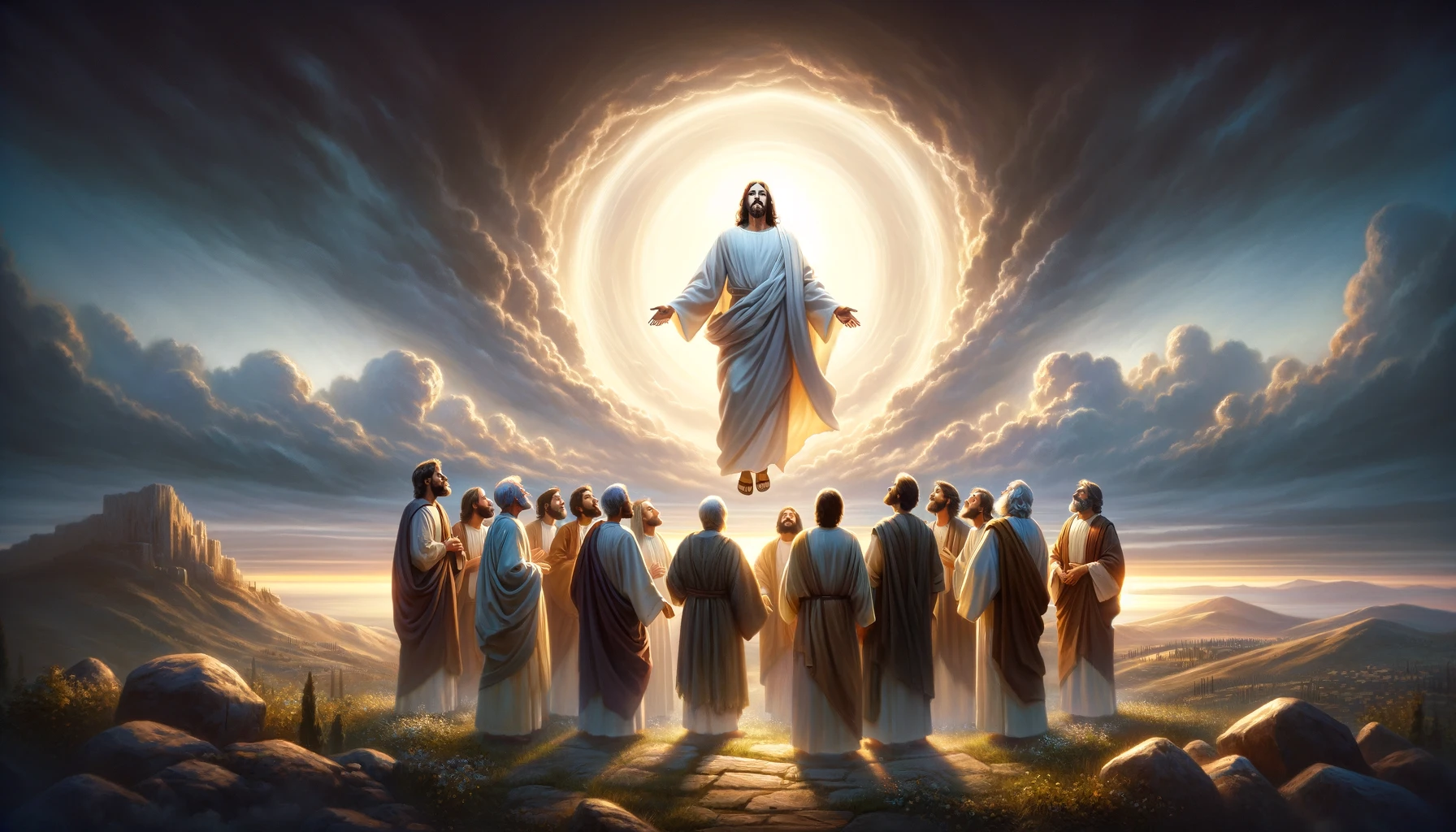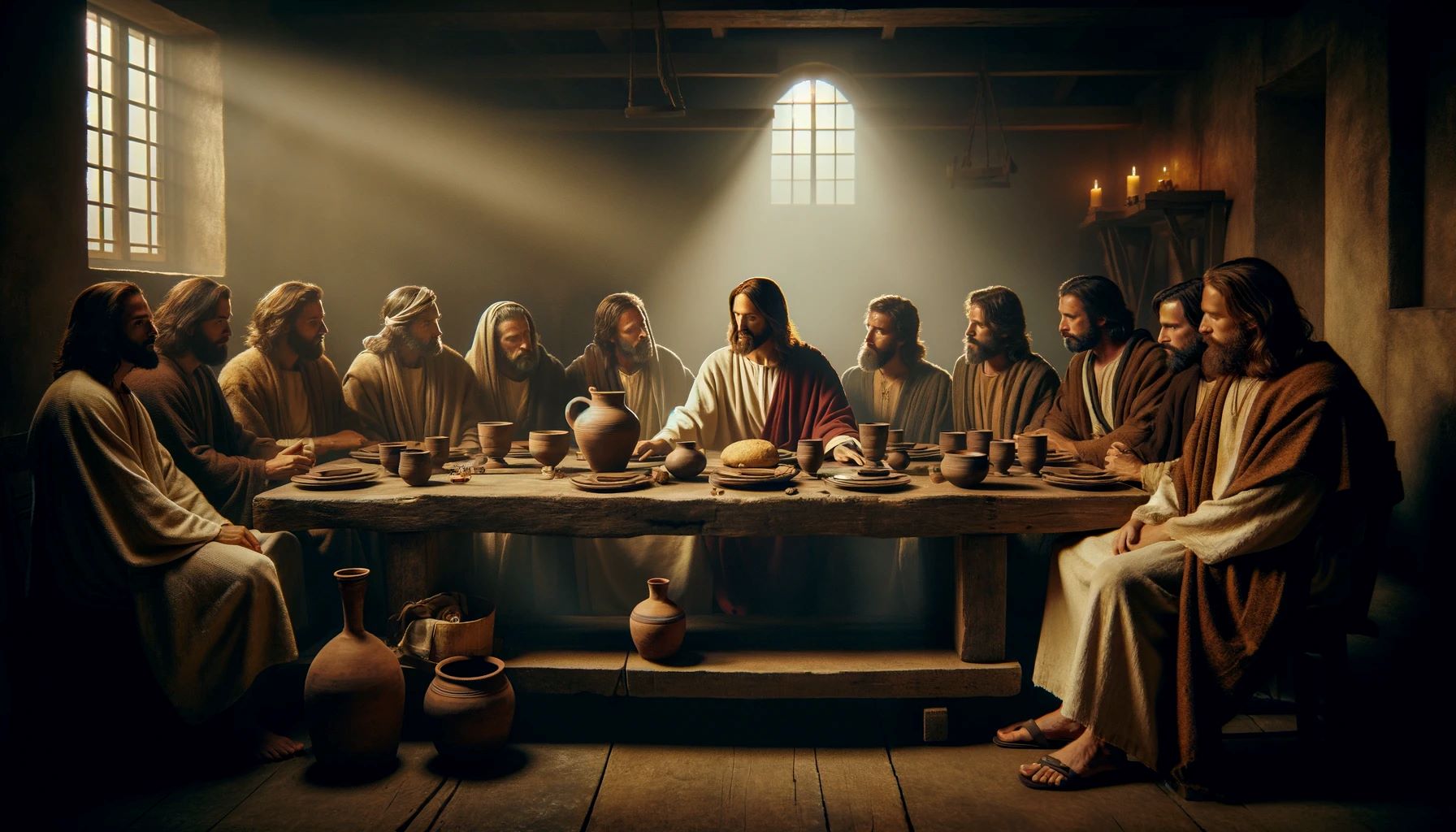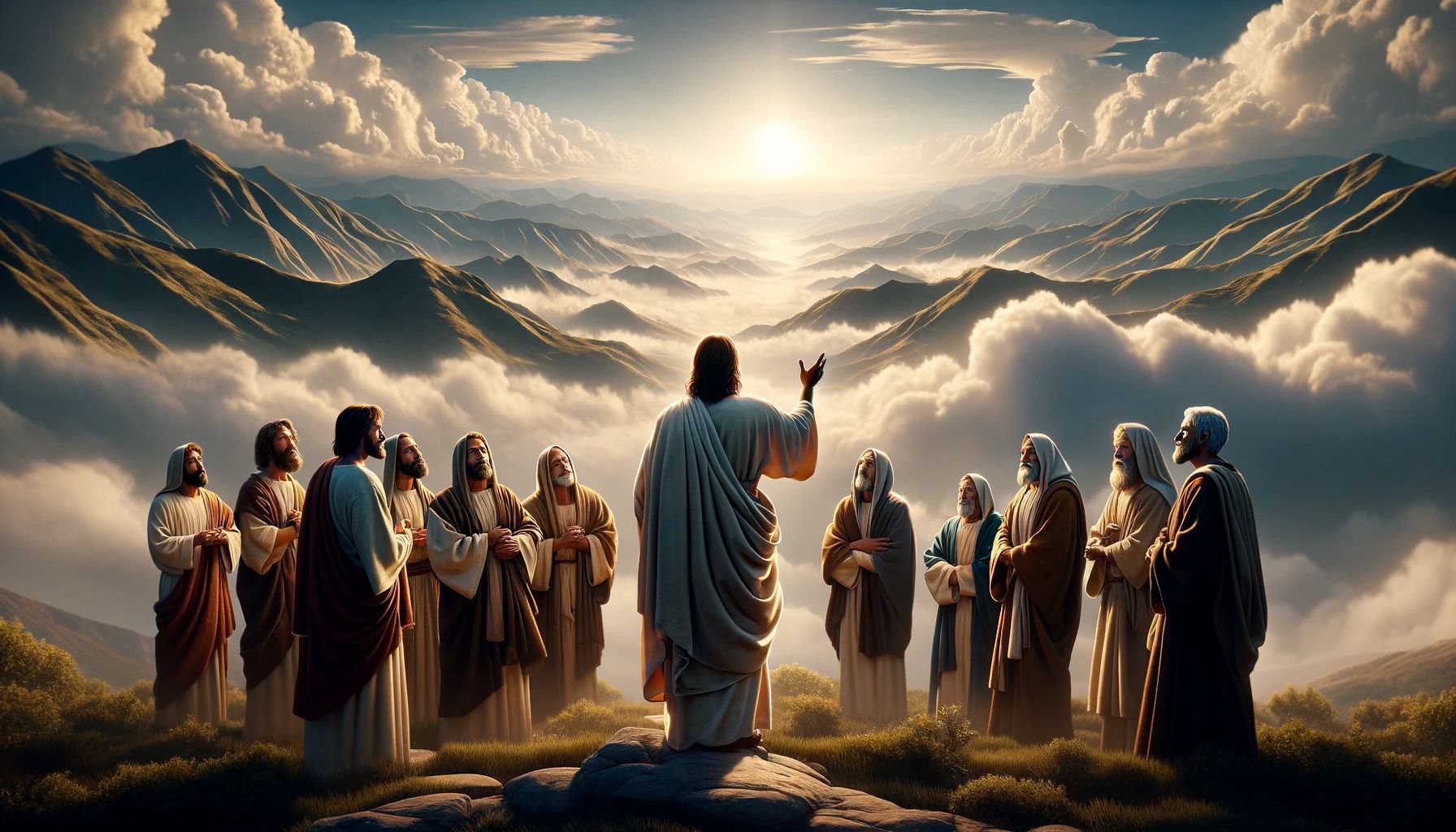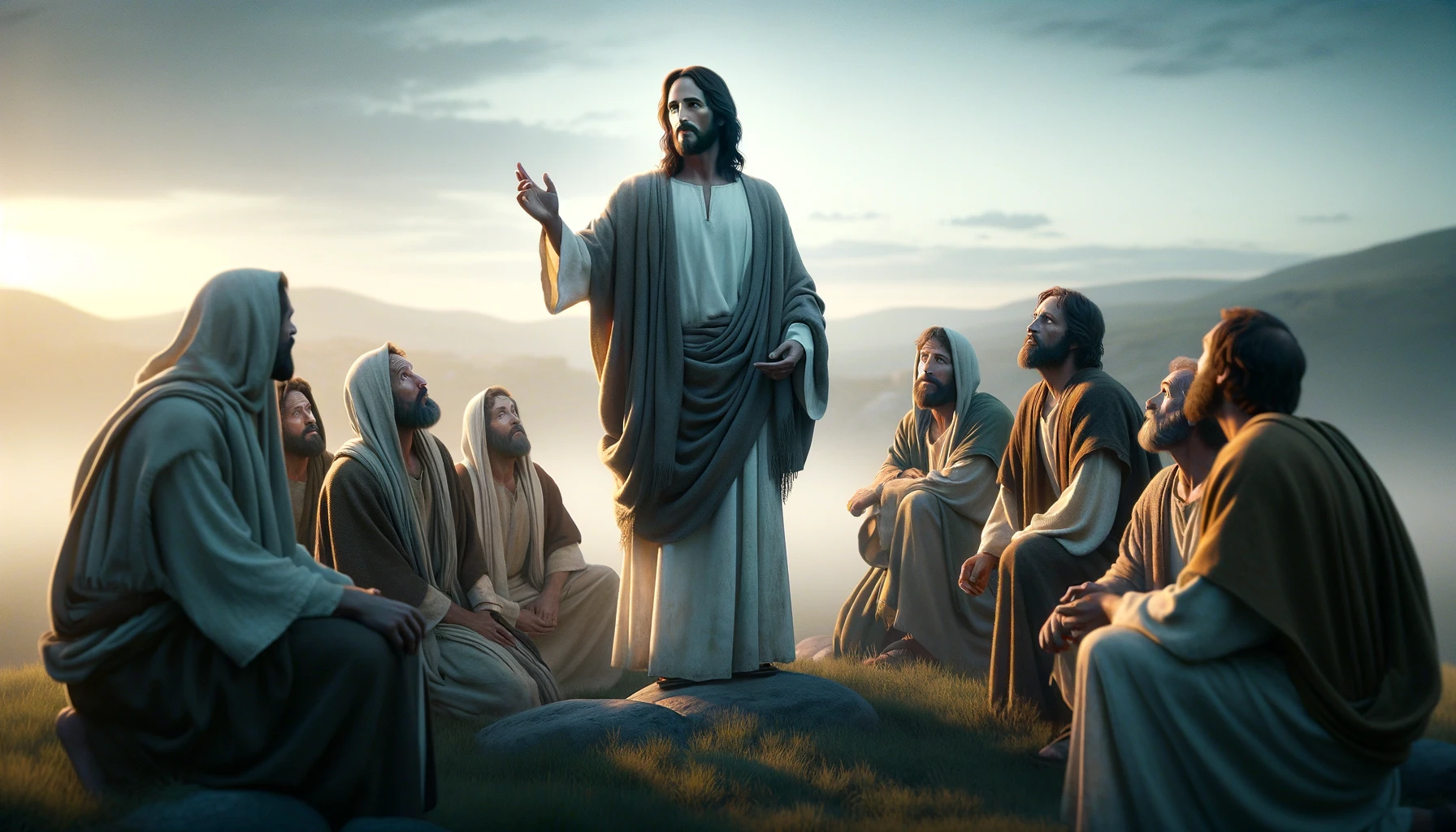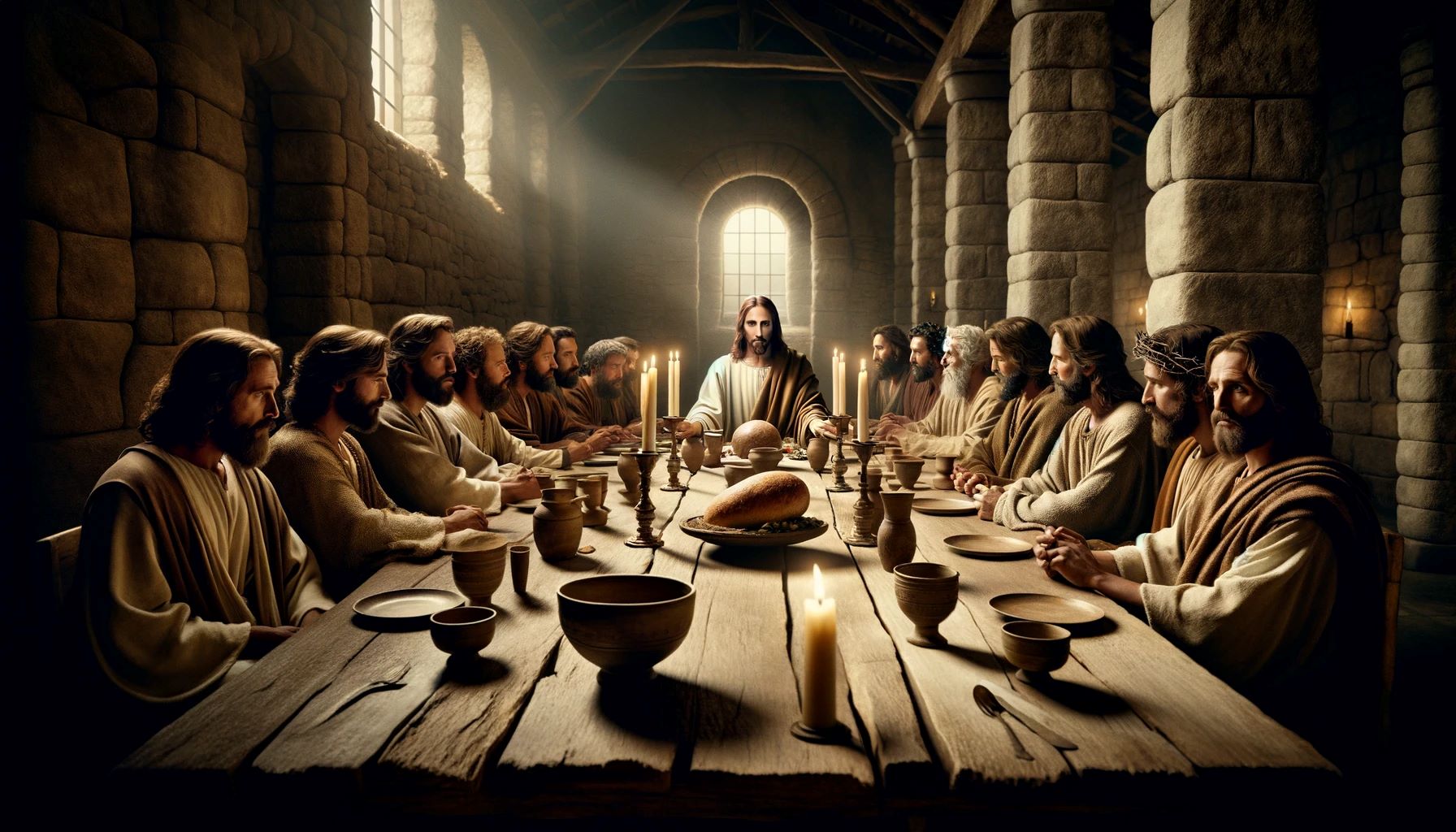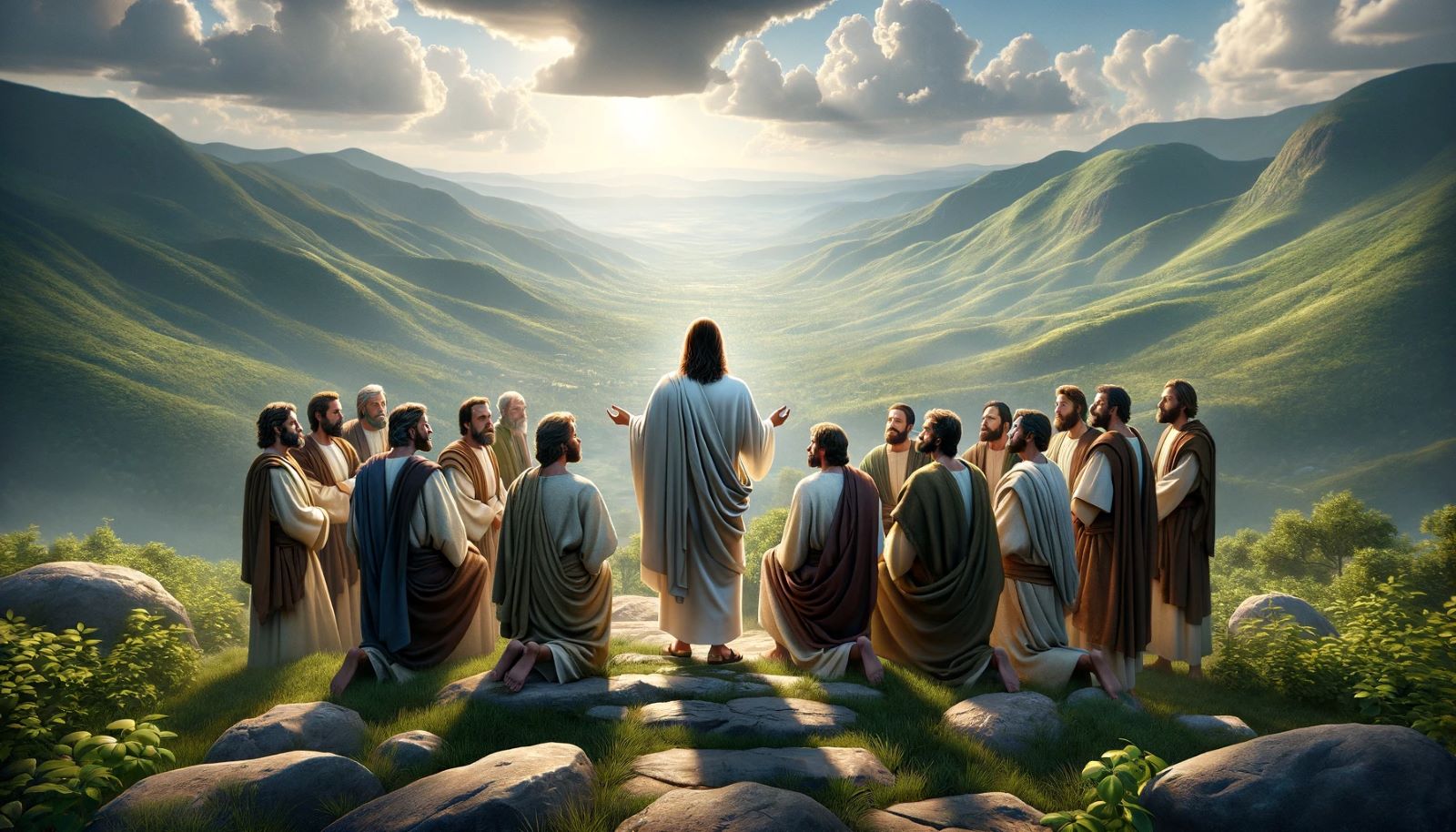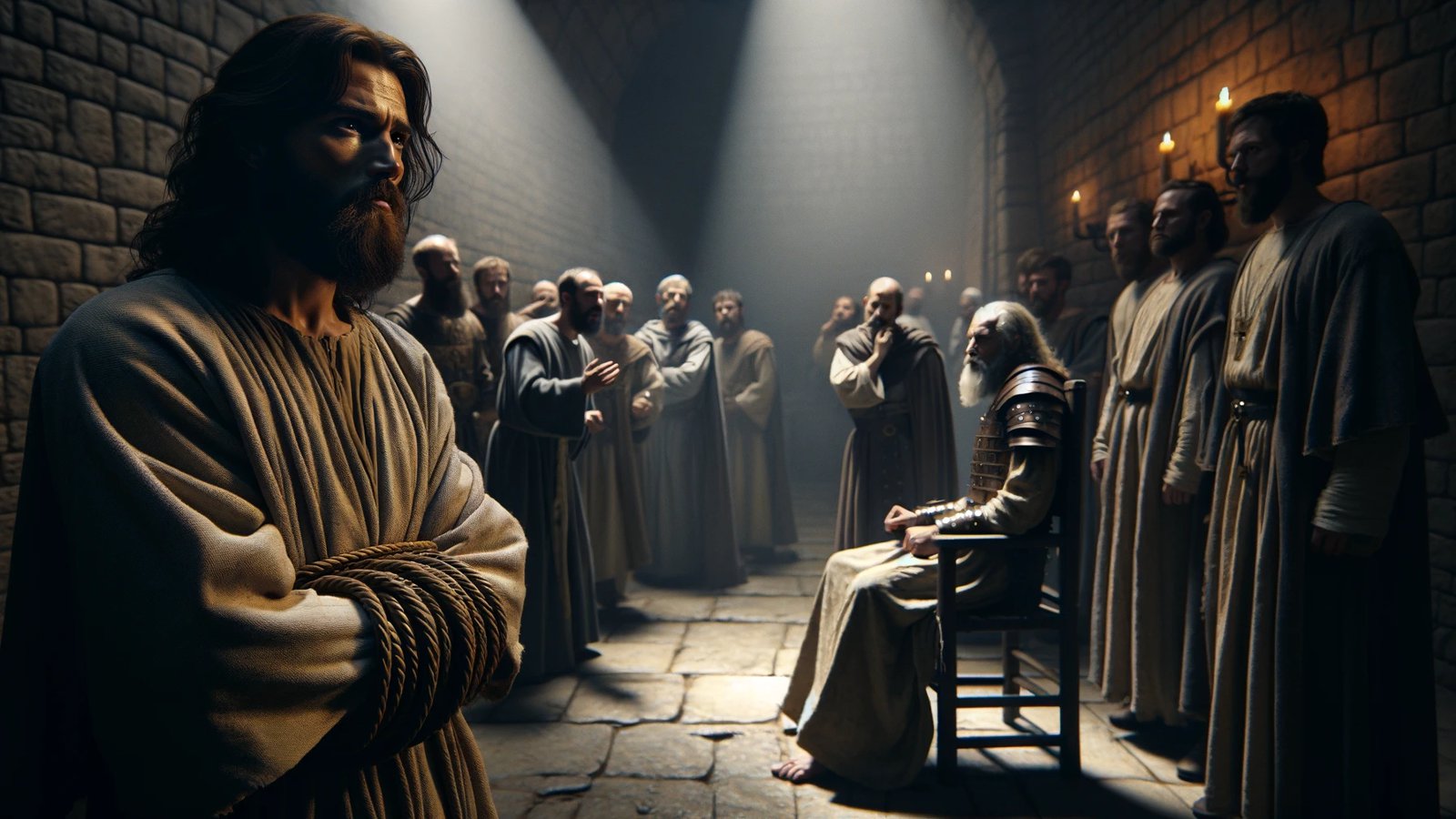Home>Bible Facts>What Did Jesus Say To His Apostles At The Last Supper
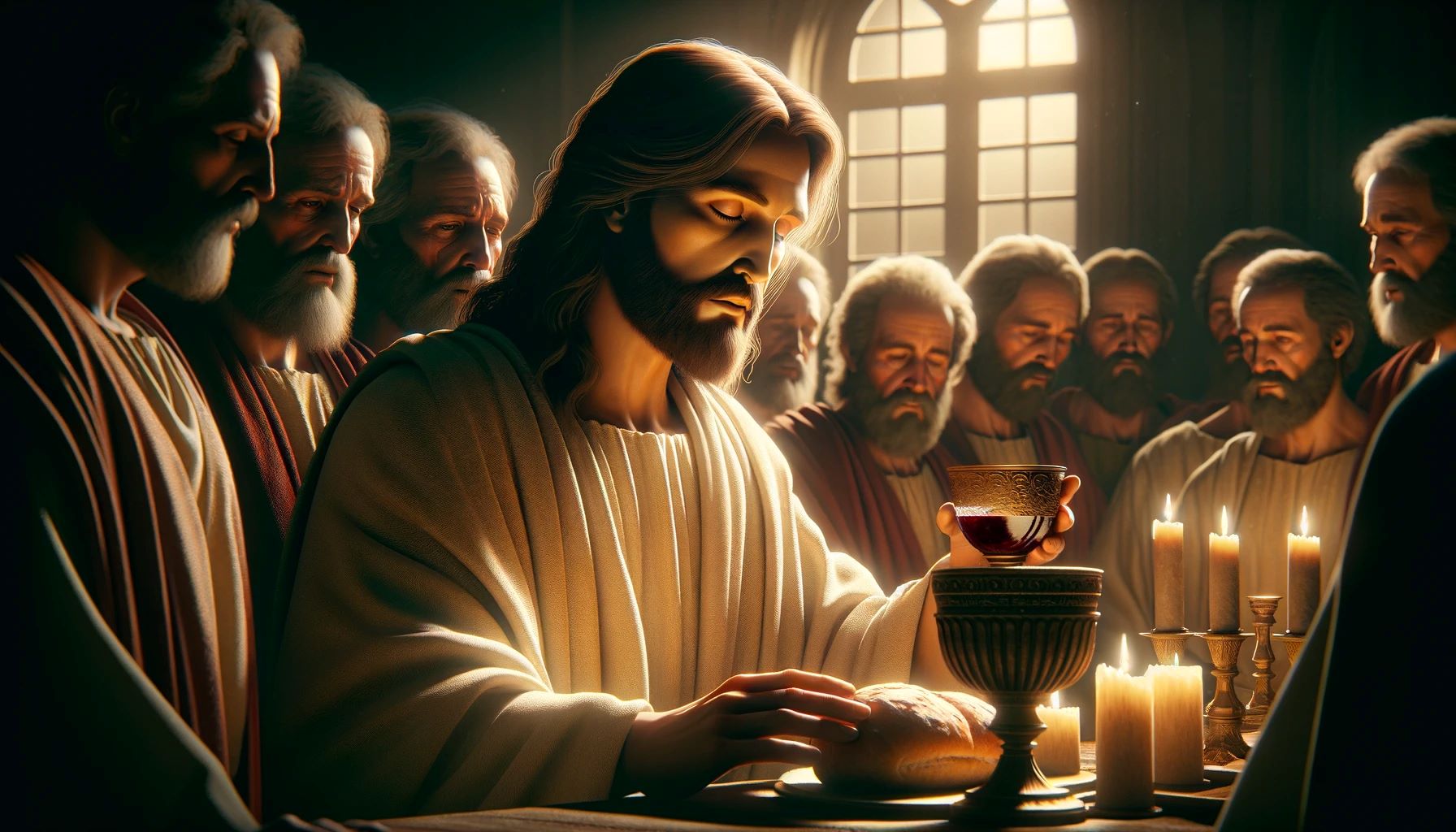

Bible Facts
What Did Jesus Say To His Apostles At The Last Supper
Published: February 17, 2024
Ericka Andersen, an editor at Christian.net, expertly merges digital strategy with content creation, focusing on faith and societal issues. Her communication skills enhance the platform's engaging narratives, fostering meaningful dialogue on belief's impact on society.
Discover the profound words spoken by Jesus to his apostles at the Last Supper. Explore fascinating Bible facts and gain insight into this pivotal moment in Christian history.
(Many of the links in this article redirect to a specific reviewed product. Your purchase of these products through affiliate links helps to generate commission for Christian.net, at no extra cost. Learn more)
Table of Contents
Introduction
The Last Supper is a profoundly significant event in the life of Jesus Christ, marking the final meal he shared with his apostles before his crucifixion. This poignant gathering is rich with meaning and symbolism, as it was during this time that Jesus imparted crucial teachings, offered words of comfort, and established the sacrament of the Eucharist. The conversations and interactions that took place during this momentous occasion provide invaluable insights into the depth of Jesus' love for his disciples and the profound impact of his impending sacrifice.
This article delves into the pivotal moments of the Last Supper, exploring the poignant exchanges between Jesus and his apostles. By examining the setting, the words spoken, and the actions taken during this sacred gathering, we gain a deeper understanding of the profound significance of this event and its enduring relevance in the Christian faith. Join us on this enlightening journey as we unravel the timeless wisdom and unwavering love that Jesus imparted to his apostles during the Last Supper.
Read more: What Power Did Jesus Pass On To His Apostles
The Setting of the Last Supper
The Last Supper took place in an upper room in Jerusalem, a location that holds profound significance in the Christian faith. This intimate gathering unfolded against the backdrop of impending events that would forever alter the course of human history. As Jesus and his apostles reclined at the table, the atmosphere was charged with a sense of solemnity and anticipation. The flickering light of oil lamps cast a warm glow, creating an ambiance of intimacy and reverence.
The setting itself held symbolic meaning, as it was within these hallowed walls that Jesus would institute the sacrament of the Eucharist and deliver his poignant teachings. The room bore witness to the profound bond between Jesus and his apostles, serving as the sacred space where they would partake in their final meal together before Jesus' crucifixion.
Amidst the aroma of freshly baked bread and the sound of pouring wine, the air was thick with emotion as Jesus prepared to impart his last words of wisdom and comfort to his beloved disciples. The setting of the Last Supper, with its intimate and solemn atmosphere, set the stage for the profound teachings and acts of love that would unfold during this momentous occasion.
As the evening sun cast its final rays over the city of Jerusalem, the Last Supper commenced, marking the beginning of a sequence of events that would ultimately lead to the redemption of humanity. The setting of the Last Supper, with its poignant significance and sacred aura, serves as a poignant reminder of the depth of Jesus' love and the selfless sacrifice that would soon unfold.
This setting, steeped in history and imbued with spiritual significance, provided the backdrop for the timeless teachings and acts of love that would forever resonate in the hearts of believers. The Last Supper, set within the confines of an upper room in Jerusalem, stands as a testament to the enduring impact of Jesus' final moments with his apostles and the profound legacy of love and redemption that emerged from this sacred gathering.
Jesus' Words of Comfort and Reassurance
As the Last Supper unfolded, Jesus, fully aware of the trials that awaited both himself and his disciples, sought to impart words of comfort and reassurance. In the midst of the solemn gathering, he addressed his apostles with profound tenderness, offering them solace and guidance in the face of the impending challenges.
With unwavering love and empathy, Jesus spoke directly to the hearts of his disciples, assuring them of his enduring presence and the promise of eternal hope. He tenderly conveyed the message of unity and steadfast faith, urging his followers to remain rooted in the profound love that bound them together. In doing so, Jesus sought to fortify their spirits, knowing that they would soon be confronted with the anguish of witnessing his crucifixion.
In his poignant words, Jesus reassured his apostles that despite the trials and tribulations they would face, they were not alone. He promised to send the Holy Spirit, the Comforter, to dwell within them and provide strength and guidance in his physical absence. This profound assurance served as a source of enduring comfort, instilling within the apostles a sense of unwavering hope and resilience in the face of adversity.
Furthermore, Jesus tenderly reminded his disciples of the eternal significance of their bond, emphasizing the transformative power of love and selfless service. His words resonated with a profound sense of compassion, as he encouraged his apostles to emulate his example of humility and sacrificial love. Through his gentle reassurances, Jesus instilled within his followers a deep sense of purpose and solidarity, anchoring them in the enduring truth of his teachings.
In the midst of the poignant exchanges that unfolded during the Last Supper, Jesus' words of comfort and reassurance stand as a testament to his unwavering love and compassion. His profound empathy and tender guidance continue to resonate across centuries, offering solace and strength to all who seek refuge in his timeless teachings.
As the evening shadows lengthened and the air grew heavy with emotion, Jesus' words of comfort and reassurance echoed through the hallowed space, imprinting upon the hearts of his apostles a legacy of enduring hope and unwavering faith.
Jesus' Prediction of His Betrayal
Amidst the solemnity of the Last Supper, Jesus, with a heavy yet resolute heart, addressed his beloved apostles, foretelling the impending betrayal that would deeply wound their sacred circle. In a moment fraught with anguish and profound significance, Jesus revealed that one among them would betray him. This revelation cast a palpable shadow over the gathering, stirring a tumult of emotions within the hearts of the apostles.
The weight of Jesus' prediction hung heavily in the air, permeating the intimate space with an undercurrent of sorrow and disbelief. The apostles, gripped by a mixture of shock and disbelief, sought to comprehend the unfathomable revelation that threatened to fracture the bonds of trust and camaraderie that had bound them to their beloved teacher.
As the gravity of Jesus' words settled upon the assembly, a profound sense of unease and introspection enveloped the room. Each apostle grappled with the haunting question of their own loyalty, fervently seeking to discern the identity of the betrayer while grappling with the unsettling revelation that their cherished brotherhood was imperiled by the specter of betrayal.
Amidst the tumultuous emotions that reverberated through the gathering, Jesus' unwavering composure and steadfast resolve stood as a beacon of strength and unwavering love. Despite the looming shadow of betrayal, Jesus' demeanor radiated a profound sense of compassion and forgiveness, underscoring the depth of his sacrificial love and unwavering commitment to fulfilling his divine purpose.
In the wake of Jesus' prediction, the apostles were confronted with a profound test of faith and loyalty, grappling with the unsettling revelation that one among them would succumb to the forces of betrayal. This pivotal moment, fraught with emotional turmoil and introspection, serves as a poignant reminder of the complex interplay between human frailty and the enduring grace of divine love.
As the evening shadows deepened and the weight of Jesus' prediction hung heavy in the air, the apostles found themselves embroiled in a maelstrom of conflicting emotions, grappling with the profound implications of Jesus' revelation. The prediction of betrayal, a pivotal moment imbued with emotional gravity, serves as a testament to the depth of Jesus' sacrifice and the unwavering resilience of his love in the face of impending adversity.
Jesus' Instructions for His Apostles
Amidst the poignant exchanges and emotional gravity of the Last Supper, Jesus imparted profound instructions to his apostles, laying the groundwork for their mission and ministry following his imminent departure. With unwavering love and unwavering resolve, Jesus sought to equip his disciples with the guidance and wisdom necessary to navigate the tumultuous path that lay ahead.
In a deeply intimate and solemn manner, Jesus exhorted his apostles to embody the essence of servanthood and humility, emphasizing the transformative power of selfless love and compassionate leadership. He demonstrated this ethos by washing the feet of his disciples, a profound act of humility that underscored the importance of servant leadership and sacrificial love.
Furthermore, Jesus imparted invaluable teachings on the nature of discipleship, urging his followers to emulate his example of unwavering faith and steadfast commitment to spreading the message of love and redemption. He exhorted them to remain steadfast in their devotion to his teachings, emphasizing the profound impact of unity and solidarity in the face of adversity.
In addition to these foundational instructions, Jesus forewarned his apostles of the trials and tribulations they would encounter in the world, preparing them for the challenges that awaited them. He urged them to take refuge in the promise of divine peace and unwavering faith, assuring them that despite the tumultuous journey that lay ahead, they would be sustained by the enduring presence of the Holy Spirit.
Through his instructions, Jesus instilled within his apostles a profound sense of purpose and resilience, equipping them with the spiritual fortitude and unwavering resolve necessary to carry forth his message of love and redemption. His words of guidance and wisdom continue to resonate as a timeless blueprint for compassionate leadership and unwavering devotion to the transformative power of love.
As the evening unfolded and the weight of impending events hung heavy in the air, Jesus' instructions for his apostles served as a beacon of hope and unwavering resolve, laying the foundation for the enduring legacy of love and redemption that would unfold in the wake of his sacrificial love.
Read more: What Did Jesus Commission His Apostles To Do
The Institution of the Eucharist
Amidst the profound exchanges and emotional gravity of the Last Supper, Jesus initiated a transformative and sacred ritual that would forever alter the course of Christian worship: the institution of the Eucharist. In a moment steeped in symbolism and profound significance, Jesus took bread, blessed it, and broke it, imparting to his apostles a profound revelation of its enduring spiritual significance.
As Jesus held the bread in his hands, he spoke words that transcended the immediate moment, infusing the simple act with profound spiritual meaning. He declared, "Take, eat; this is my body," thereby establishing a profound connection between the bread and his sacrificial offering. In this transformative act, Jesus imparted to his apostles the enduring significance of the bread as a symbol of his body, broken for the redemption of humanity.
Following this pivotal gesture, Jesus took the cup, offering it to his apostles and declaring, "Drink from it, all of you; for this is my blood of the covenant, which is poured out for many for the forgiveness of sins." In this profound act, Jesus imbued the cup with profound spiritual significance, establishing it as a symbol of his blood, shed for the forgiveness of sins and the establishment of a new covenant between God and humanity.
The institution of the Eucharist, with its profound symbolism and enduring spiritual significance, stands as a testament to the depth of Jesus' sacrificial love and the transformative power of his redemptive mission. Through this sacred ritual, Jesus imparted to his apostles and, by extension, to all who partake in the Eucharist, a tangible and enduring connection to his sacrificial offering, inviting them to partake in the spiritual nourishment and redemptive grace it embodies.
The institution of the Eucharist at the Last Supper serves as a timeless reminder of the enduring legacy of Jesus' sacrificial love and the transformative power of the redemption he offered. This sacred ritual continues to form the cornerstone of Christian worship, inviting believers to partake in the spiritual nourishment and profound communion with the divine, as exemplified by Jesus' profound act of instituting the Eucharist during the Last Supper.
The institution of the Eucharist, with its profound symbolism and enduring spiritual significance, stands as a testament to the depth of Jesus' sacrificial love and the transformative power of his redemptive mission. Through this sacred ritual, Jesus imparted to his apostles and, by extension, to all who partake in the Eucharist, a tangible and enduring connection to his sacrificial offering, inviting them to partake in the spiritual nourishment and redemptive grace it embodies.
The institution of the Eucharist at the Last Supper serves as a timeless reminder of the enduring legacy of Jesus' sacrificial love and the transformative power of the redemption he offered. This sacred ritual continues to form the cornerstone of Christian worship, inviting believers to partake in the spiritual nourishment and profound communion with the divine, as exemplified by Jesus' profound act of instituting the Eucharist during the Last Supper.
Conclusion
The Last Supper stands as a poignant testament to the profound love, unwavering compassion, and transformative teachings of Jesus Christ. Within the intimate confines of an upper room in Jerusalem, amidst the flickering light of oil lamps and the aroma of freshly baked bread, Jesus imparted timeless wisdom, comfort, and reassurance to his beloved apostles. The setting itself held profound significance, serving as the backdrop for the institution of the Eucharist and the poignant exchanges that unfolded during this sacred gathering.
Amidst the emotional gravity of the Last Supper, Jesus tenderly reassured his apostles, offering them solace and guidance in the face of the trials that lay ahead. His words of comfort and reassurance continue to resonate across centuries, serving as a source of enduring hope and strength for all who seek refuge in his timeless teachings.
Furthermore, the Last Supper bore witness to Jesus' prediction of his betrayal, a moment fraught with emotional turmoil and introspection. The revelation of impending betrayal cast a palpable shadow over the gathering, underscoring the complex interplay between human frailty and the enduring grace of divine love.
In addition to these pivotal moments, Jesus imparted profound instructions to his apostles, equipping them with the spiritual fortitude and unwavering resolve necessary to carry forth his message of love and redemption. His teachings on servant leadership, humility, and unwavering faith continue to serve as a timeless blueprint for compassionate leadership and unwavering devotion to the transformative power of love.
The institution of the Eucharist at the Last Supper stands as a timeless reminder of the enduring legacy of Jesus' sacrificial love and the transformative power of the redemption he offered. This sacred ritual continues to form the cornerstone of Christian worship, inviting believers to partake in the spiritual nourishment and profound communion with the divine, as exemplified by Jesus' profound act of instituting the Eucharist during the Last Supper.
In conclusion, the Last Supper encapsulates the depth of Jesus' love, the enduring significance of his teachings, and the transformative power of his redemptive mission. This sacred gathering, set against the backdrop of impending events that would forever alter the course of human history, serves as a timeless testament to the enduring legacy of love and redemption that emerged from the poignant exchanges and transformative acts that unfolded within its hallowed confines.
